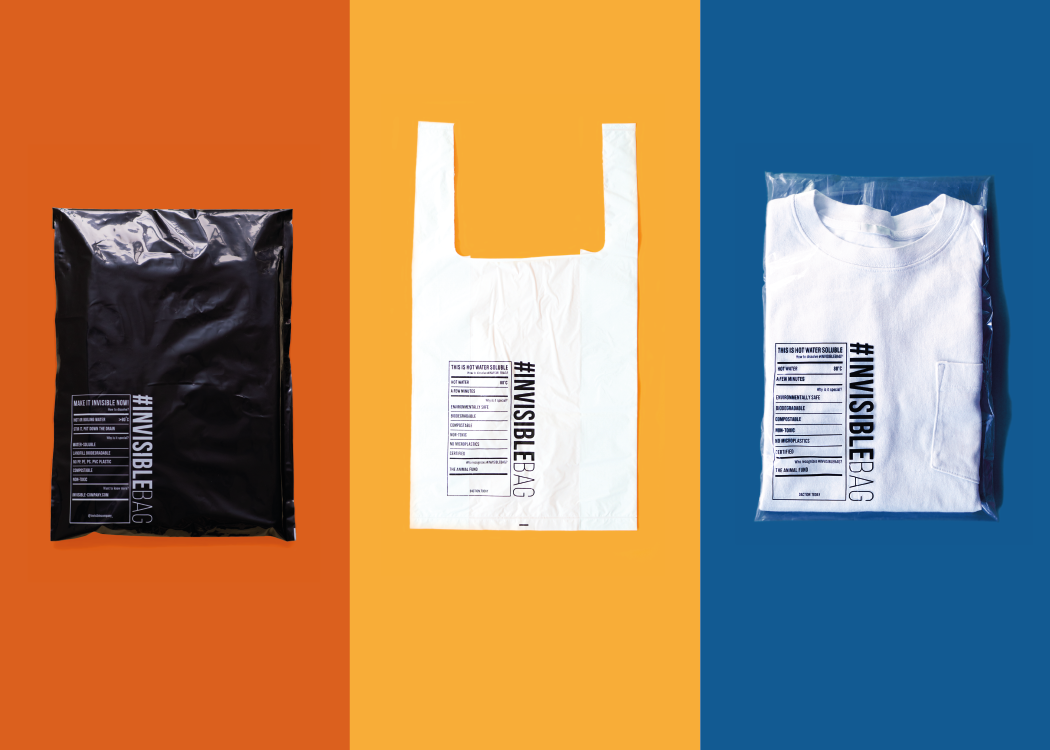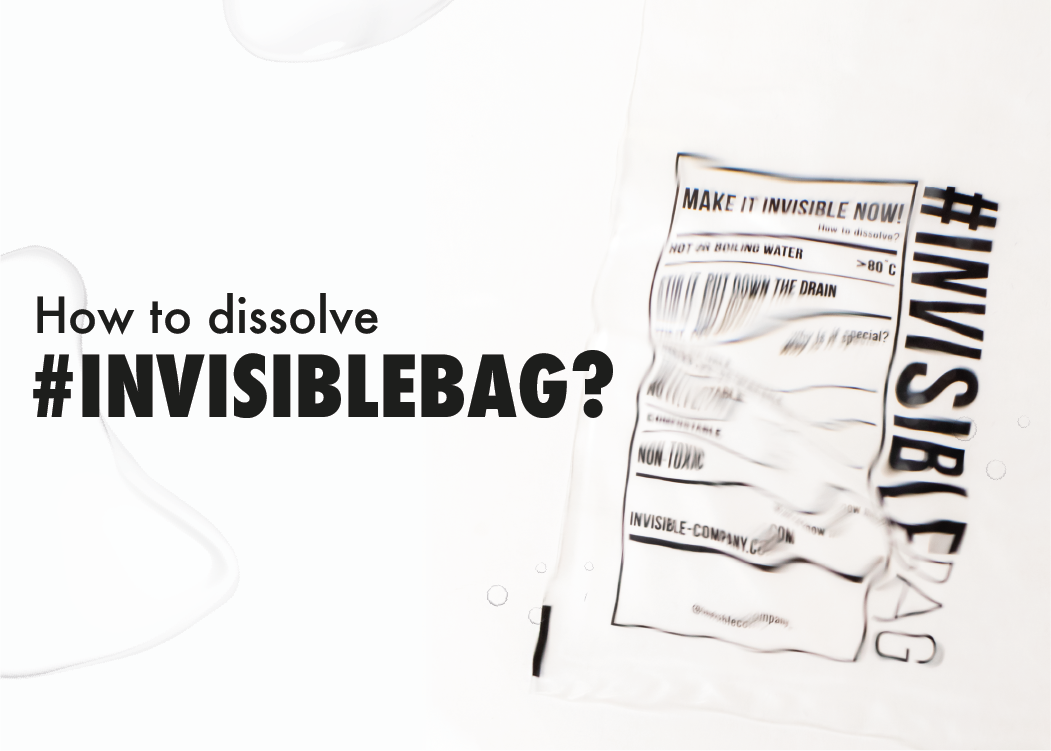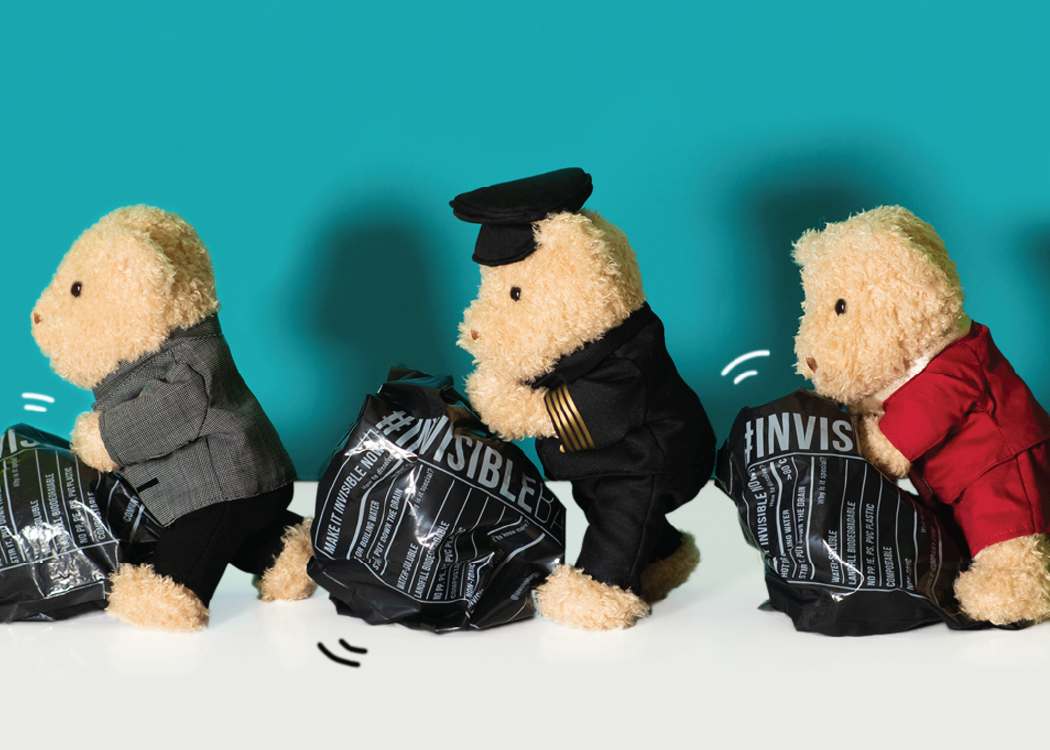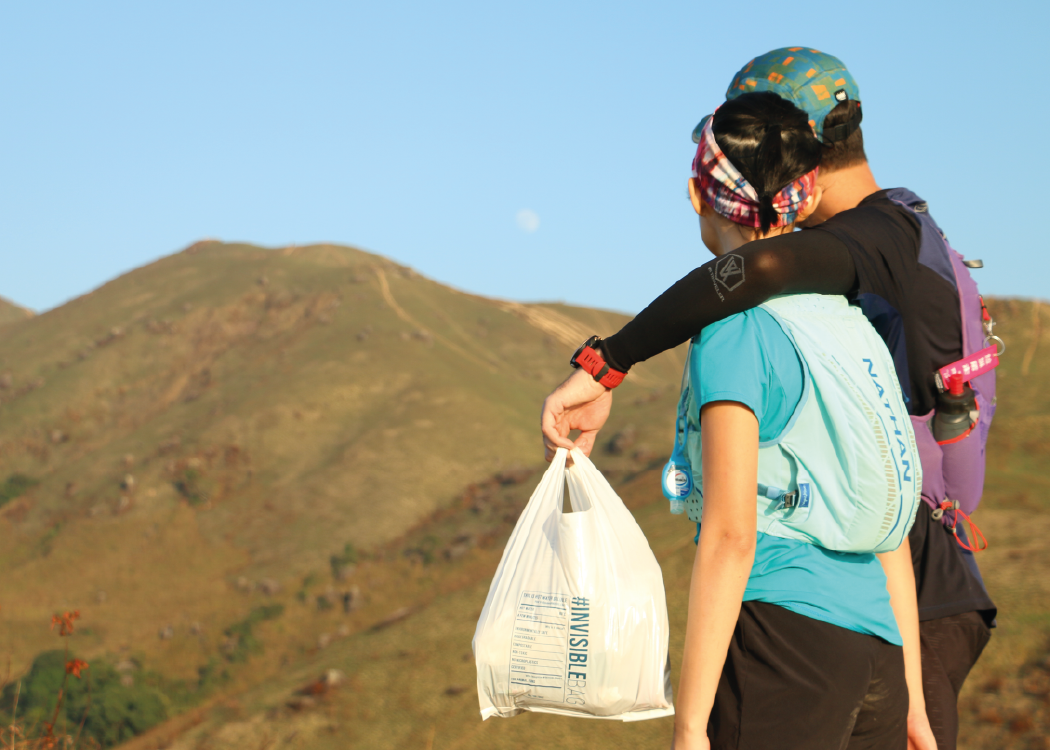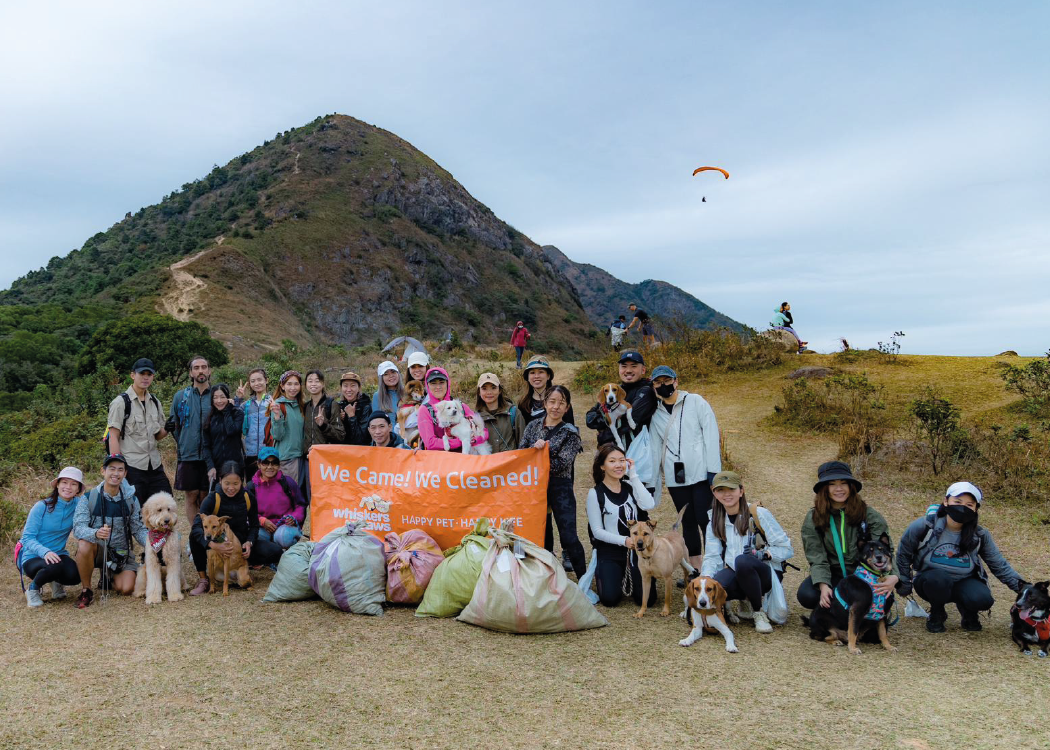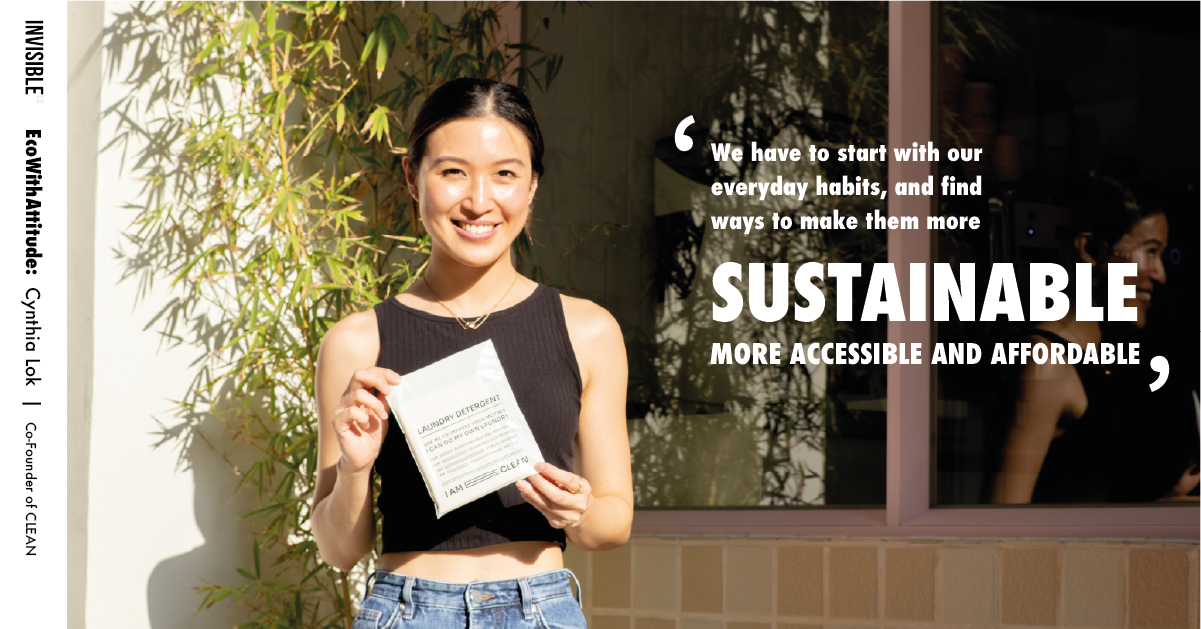
T here are always laundry shops and coffee shops around the corner, but why not having both at the same time? While you are waiting for the laundry, you could enjoy the coffee in your neighbourhood. But what makes a laundry & coffee shop more special? It is sustainable in every aspect to normalize the eco movement, from sourcing, operation to packaging with #INVISIBLEBAG. In this Issue 07 Eco With Attitude interview, we have Cynthia Lok, co-founder of CLEAN to share their sustainable movements.
To make lasting change, we realised we have to start with our everyday habits, and find ways to make them more sustainable, more accessible and affordable.
#1 What inspires you to start CLEAN with Bryan?
About 6-7 years ago, I went to Belgium and was inspired by a laundromat that also served coffee and food; I immediately fell in love with the idea. However, both of us had full time jobs, so the idea never became reality. Until a few years ago, at the peak of Hong Kong’s social unrest and the start of COVID-19, I really wanted to transform the negative energy in our communities into something meaningful to me. And that was when I decided to give CLEAN a go. As we were conceptualising CLEAN, it was evident that people had different interpretations of ‘sustainability’ and there was a lot of ‘greenwashing’ in the market. We were determined to look at sustainability holistically and not to create just another ‘gimmick’. To make lasting change, we realised we have to start with our everyday habits, and find ways to make them more sustainable, more accessible and affordable. Coffee and Laundry is the perfect start, because they are essential daily habits of Hong Kongers.

#2 How did the name CLEAN come about?
It was just so obvious to us! Clean can represent eco-friendly, drinks and food that are pure, simple and with no additives, and of course things that are fresh! Everything that we want to represent, plus it’s a fun play on words.

#3 What makes the difference between CLEAN and other coffee / laundry shop? From mission to location?
From the outside, I really wanted customers to do good, without necessarily knowing it. The idea is that through a cup of quality coffee and a basket of laundry, they are already contributing to something bigger. All they have to do is do exactly what they normally do, and we would make the changes for them in the background.
On the coffee side, we source only Direct Trade (note, not Fair Trade!) beans and try our best to support local roasters. To make lasting impact, we knew we needed to serve one of the best coffees in Hong Kong, so we spent quite a lot of time curating and refining our menu and recipes. We use Oat Milk as a default (the beans are roasted and formulated to perfectly complement Oat Milk) and charge extra if customers would like dairy milk instead. We want to normalise dining in or using reusable cups, so any requests for disposable takeaway packaging would also come at an extra charge. We want to be inclusive by having these options for our customers, but also pricing it so we can improve awareness of the environmental impact and footprint these extra elements may bring.

On the laundry side, we default on cold water washes only, automatically dispense a toxic-free and natural detergent (to prevent over consumption and reduce water pollution) and also allow our customers to rent a microfibre filter to help reduce microplastic pollution in oceans.
Our whole shop is also cashless, so we can minimise paper as much as possible.

We chose the quieter part of Sheung Wan because we wanted to be part of a slower paced lifestyle, where we can have the time to talk to our customers about these changes at our shop so they understand that it’s not just a marketing trick, but something we hope one day can make lasting impact. Our favourite part is when customers who normally drink dairy milk return to our shop ordering oat milk coffee – it really makes us happy to know that we’re known for quality and that it doesn’t have to come at the cost of the environment (or our wallets).

#4 Could you share the design concept for CLEAN? From colors to decors?
A lot of eco-friendly shops use a natural colour palette or materials. For me, I wanted to make sustainable living more fun and playful, to bring more positivity to the topic. So, we went for an unconventional colour palette with mismatched tiles and quirky signages. It’s important that CLEAN represents a happy place for our community, because that way sustainability will have a more positive association.

#5 Why #INVISIBLEBAG for CLEAN?
Finding truly sustainable packaging materials is very difficult. I was once a victim of ‘greenwashing’ too, but luckily Bryan, with his Chemistry background was quick to realise that many items labelled as eco-friendly, really weren’t. For most cases, we try to encourage our customers to bring their own containers, but we do acknowledge that it’s not always possible. So, when we first came across #INVISIBLEBAG, we were pleasantly surprised by its functionality and performance. The fact that #INVISIBLEBAG can be dissolved and washed away without creating additional toxins is great, plus it’s fun so it is always a conversation starter with customers. Our laundry detergent strips are designed with zero waste in mind too, so we knew immediately that this would be a great fit for our packaging.

#6 What are the recent changes that you have made to practice sustainability in daily life?
Before CLEAN, I admit, I was always influenced by nice marketing campaigns, but in the end I would just consume more. My philosophy towards sustainability is unconventional. I don’t believe by being vegan or cutting out plastic means we are sustainable. It helps for sure, but I do think our lifestyles have evolved in a certain way and it’s very difficult to cut certain things out completely or go backwards. Instead, I believe a lot of the perceived sustainability issues come from an imbalance of supply and demand. Hence, consuming in moderation can already reduce carbon footprint significantly. I try to always ask myself “Do I need it?”. From clothes to food and gadgets, or even taking public transport more, all these small changes and actions help to build the right balance and make gradual but lasting positive changes.

...
You may also like:
ISSUE 06. #ECOWITHATTITUDE: INTERVIEW WITH WILSON CHAN OF BUYANDSHIP , ISSUE 05. #ECOWITHATTITUDE: INTERVIEW WITH JAMES SHORROCK OF LANE EIGHT
...
Find more articles from keywords:
bring my own bottle,water refill station near me,refill my bottle,reusable water bottle


